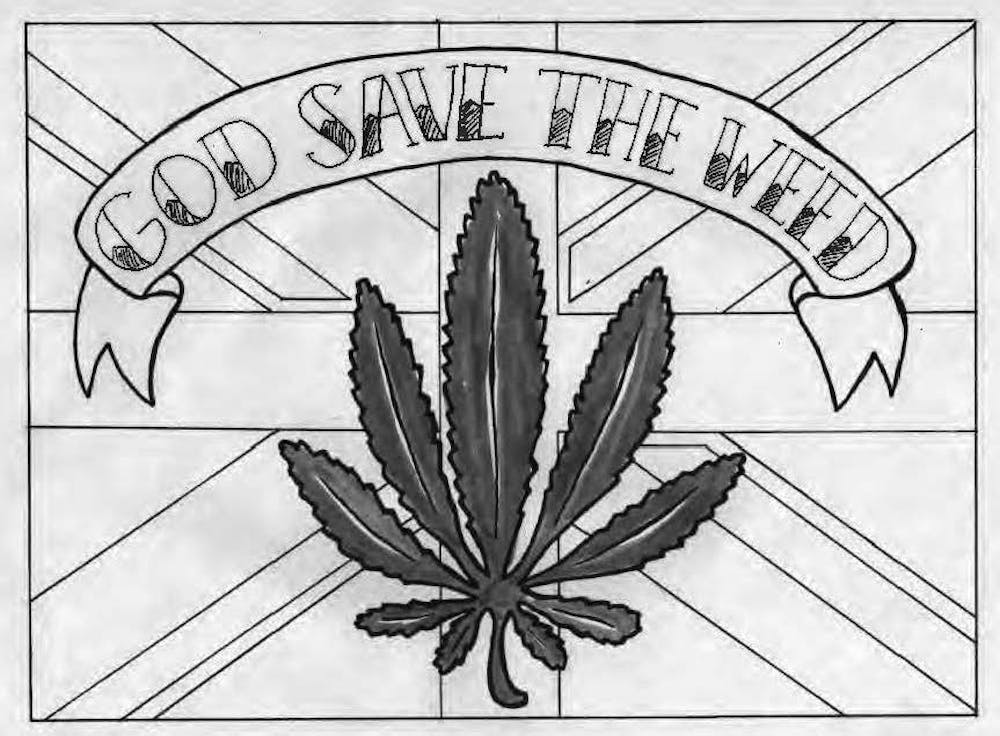We’ve all been told, time and time again, drugs are bad.
This hardly ever stops people from taking them, though, even with strict punishments for sale, possession and use.
The United Kingdom has seen an increase in its annual death toll from legal highs. There were 68 deaths in 2012, up from 10 in 2009, the BBC reported. The country has recently passed a bill to put an end to the legal drug trade.
This bill, known as the Psychoactive Substances Act, bans all substances with a psychoactive effect except for alcohol, tobacco, caffeine and pharmaceuticals.
The bill is designed to protect people from the harms of those drugs, but we the Editorial Board believe people will turn to more dangerous alternatives when their legal drugs are no longer available.
These legal highs are achieved through use of less socially acceptable substances.
A notable example is spice, a blend of synthetic compounds designed to mimic the effects of marijuana.
Spice, or synthetic marijuana, gives many adverse health effects, including agitation, vomiting and tachycardia, or rapid heart rate.

According to Newsweek, 15 people in the U.S. died from using spice and synthetic cannabinoids in 2015.
That makes these drugs more deadly than marijuana, which has yet to cause any deaths.
Most governments ban newly developed legal drugs one by one, but new analogues appear on the market as soon as old ones are banned.
A woman named Katie spoke to the Guardian about her concerns about the bill.
She said she treats chronic pain using a psychoactive plant known as kratom because she is concerned about the addictive qualities of pharmaceutical painkillers and other drugs.
When kratom becomes illegal, she will have no choice but to turn to more dangerous alternatives in order to treat her condition.
This could potentially worsen the state she’s in and leave her in an endless cycle of drug addiction.
Some people are also concerned about the potential for the bill to stifle research on new drugs, which tends to happen in the U.S.
Drug policies are typically based on whether or not a compound has medical value.
However, without extensive human trials, the medical value of a compound cannot be easily determined through research.
Even when studies show an illegal substance has therapeutic potential, the status of that drug’s legality usually does not change.
There is a growing body of medical science showing the therapeutic potential of a number of popular illegal drugs, yet they remain illegal on the grounds that those substances have no medical purpose.
Many experts are now calling for a rethinking of global drug policy. Prohibition of drugs fuels violent crime and the spread of disease.
Because of this, what was originally intended as a way to curb drug abuse and protect public health has actually done more harm than good.
These experts are calling for global decriminalization of drugs.
Decriminalization makes it legal to possess small amounts of drugs for personal use. Dealers and traffickers criminals would remain criminals.
This change would allow us to rethink our approach to addiction and drug use by allowing drug users to get medical help rather than being thrown in prison.
The Psychoactive Substances Act was supposed to go into effect this week, but it has been indefinitely delayed based on concerns that it is unenforceable.
Policymakers expressed concerns over the possibility of people turning to alternative drugs.
The police are unsure of what is actually becoming illegal. Perhaps the UK will rethink their policy and choose an evidence-based approach that promotes research rather than expanding the war on drugs.
Hopefully, one day, the U.S. will follow.




